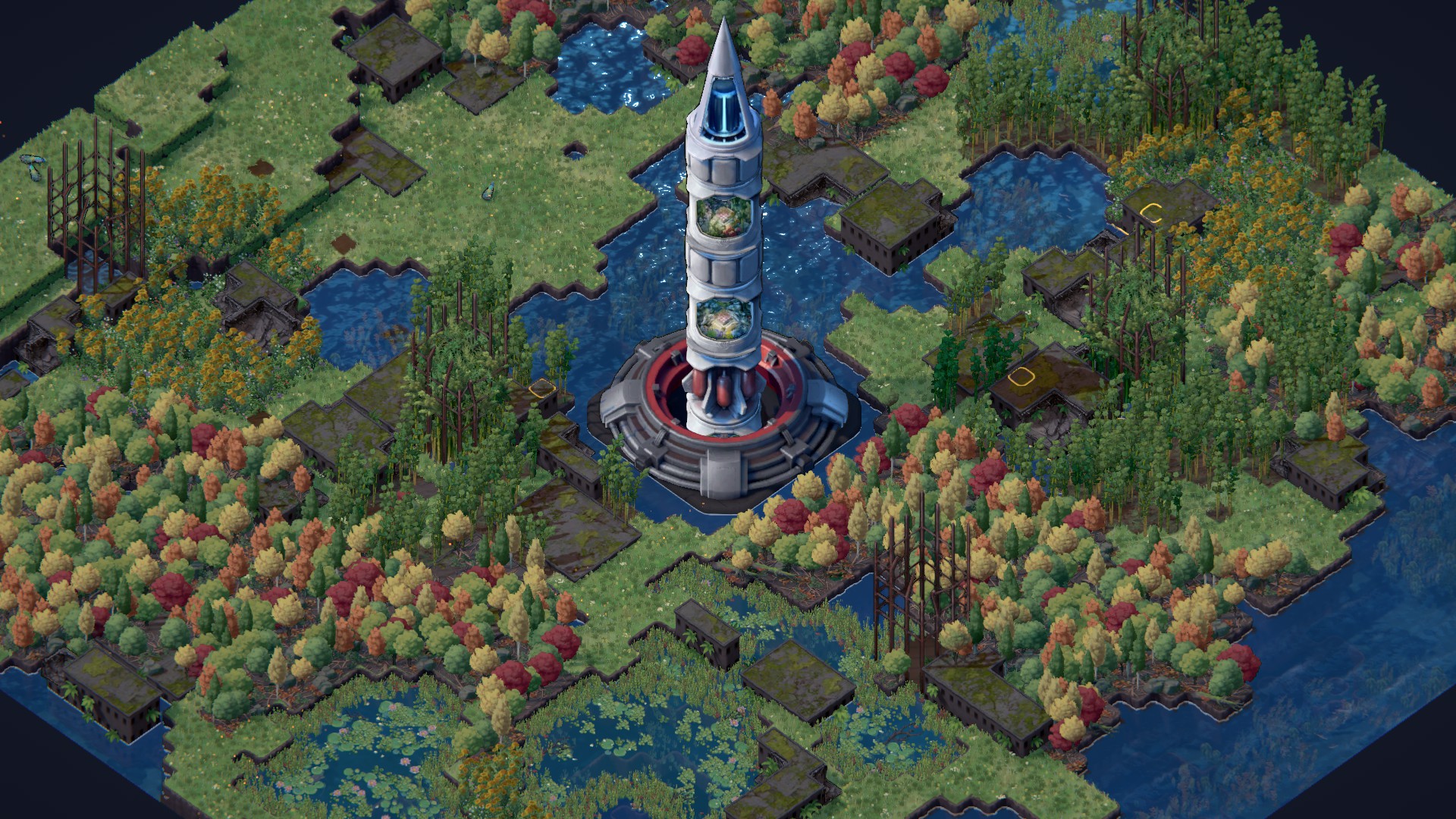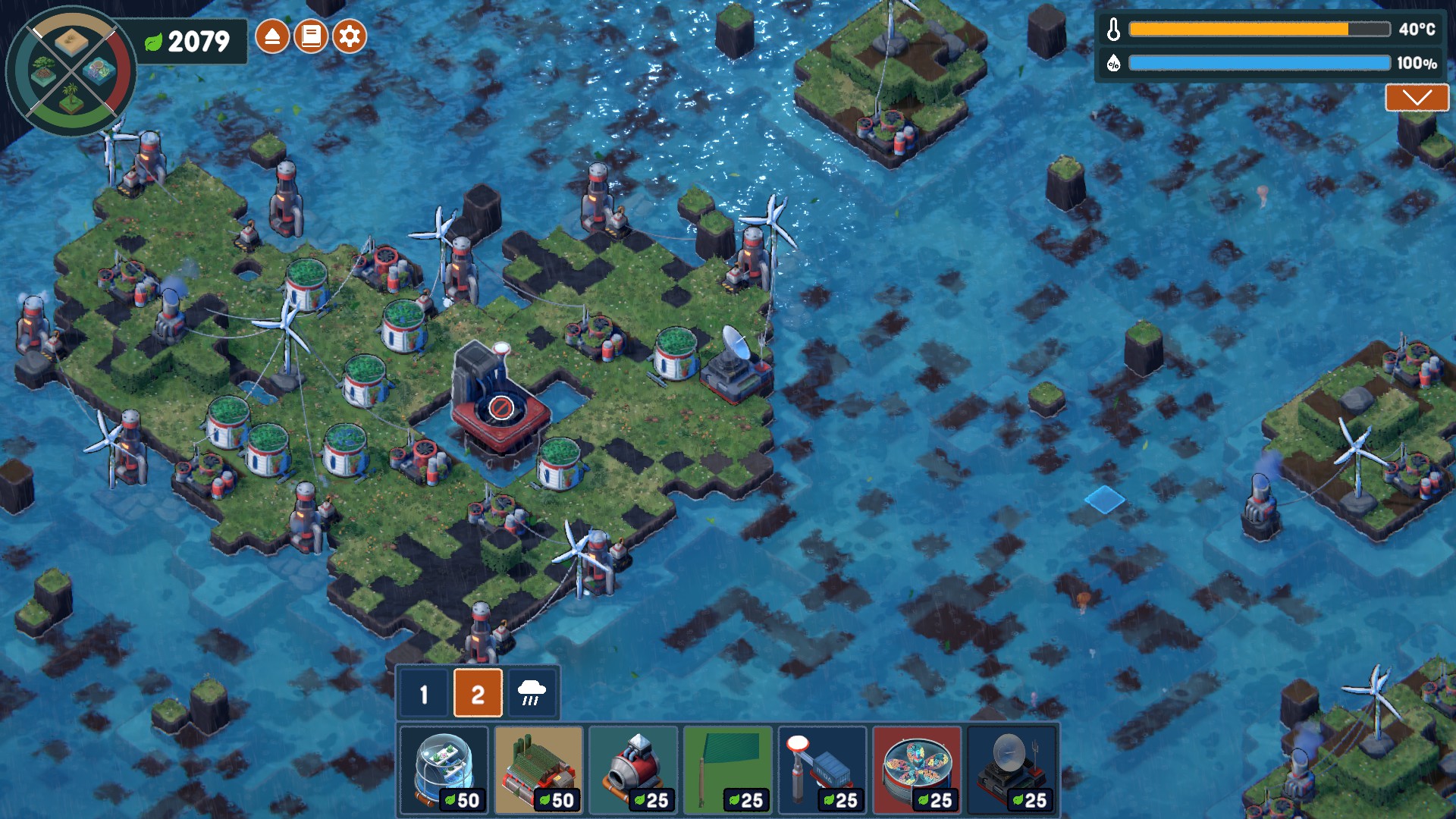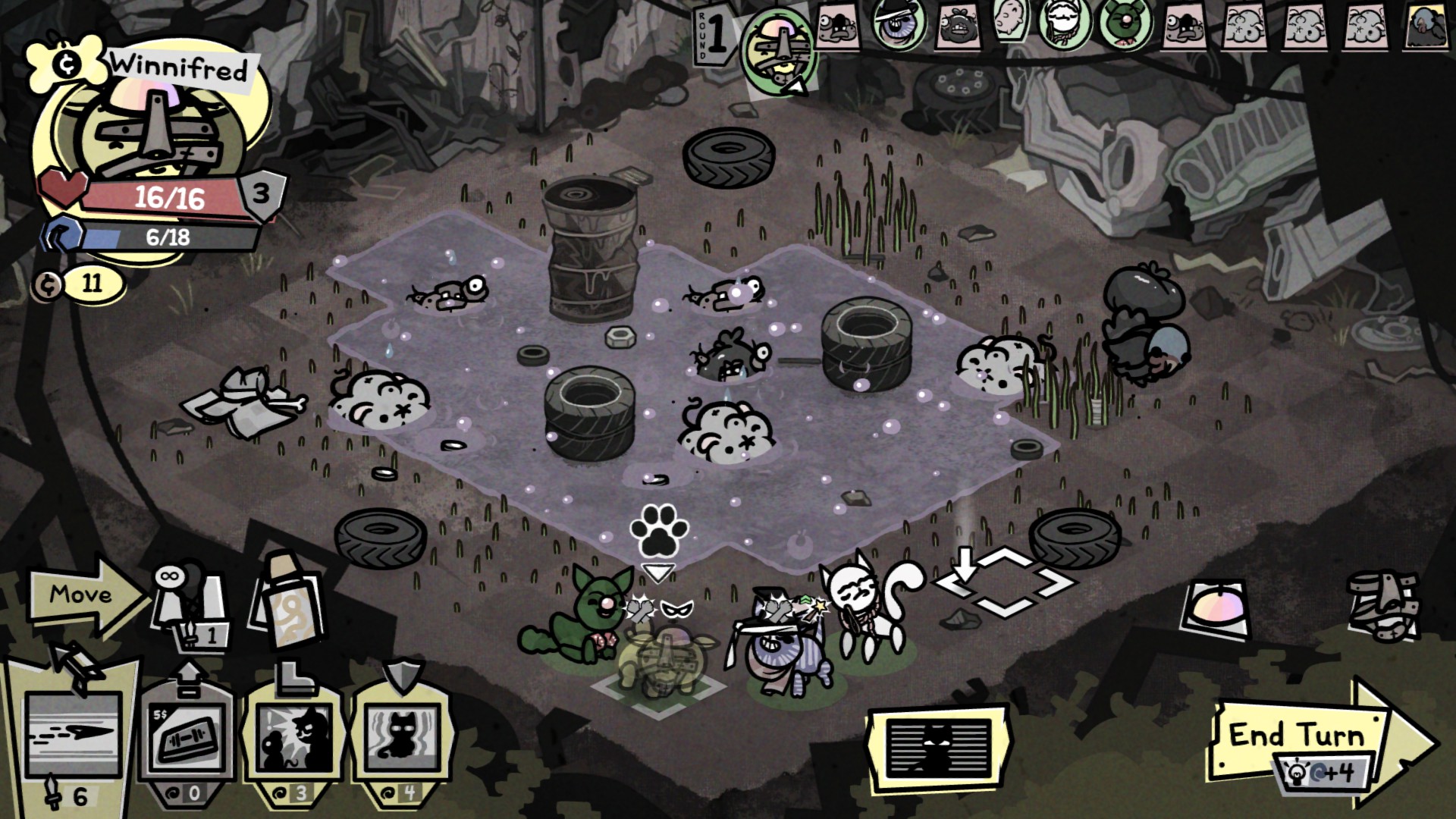Our Verdict
A small but satisfying strategy puzzler that comes, does its job and leaves without fuss.
PC Gamer's got your back
Sometimes you just want to relax with a game by yourself. Low pressure, soothing sounds, just enough challenge to keep you engaged but not frustrated. Environmentalist strategy puzzler Terra Nil fits the bill, and puts a refreshing low-key spin on the city builder genre, making it all the more surprising that it comes from Free Lives, developers of raucous meathead action games like Broforce, Gorn and… err… Genital Jousting.
What is it?: A solo environmentalist ‘reverse city builder’
Release date: March 28, 2023
Expect to pay: $24.99/£20.99
Developer: Free Lives
Publisher: Devolver Digital
Reviewed on: Windows 11, Nvidia 2080 Ti, Intel i9-9900k @ 4.9ghz, 32gb RAM
Multiplayer?: No
Link: Terranil.com
Officially billed as a "reverse city builder," it's not inaccurate to describe Terra Nil as such. It's a game about spending and generating resources, building synergistic chains of structures to achieve numerical goals. Despite this, I feel that Terra Nil owes more to puzzle games and solitaire than anything else.
Distilled down to its barest mechanical bones, this is an order-of-operations puzzle game about rolling with procedurally generated punches to try and clear the board with the fewest moves possible. Put everything down in the right order and move on—the kind of game that you play by yourself in quiet contemplation.
Cleanup crew
It is also a meditation on what we—as a species—owe to our world. Your goal in Terra Nil isn't to build the biggest, most profitable operation or defeat an enemy, but rather to take a barren, toxic wasteland, restore its natural state, reintroduce animals and then carefully unravel your work so as to not leave one trace of man-made machinery behind. Turns out that restoring beauty and then tidying up is a surprisingly compelling loop for a game.
Terra Nil is slight and focused, at least compared to most things billing themselves as strategy. There are initially only four missions played in order (taking 4-6 hours roughly, with another four variant missions unlocked after the credits roll), each taking place in a different procedurally generated environment (Temperate, Tropical, Polar, and Continental). The environments require distinct techniques and equipment in order to revive, each providing a different palette of tools and structures to use.
Each Genesis Project is a three-stage process. Starting with a lifeless isometric canvas, you're first asked to restore the basic climate and essential greenery through placing toxin scrubbers and irrigators (and later dredging up ocean floor to create new land), drawing from a limited pool of money that's increased by making particularly efficient moves. If you run out, lower difficulties allow you to recycle some of your structures, while higher settings make overextending a failure state, forcing a complete do-over. Never too hard, but always a concern.
With enough green and blue foundation laid, a new set of structures unlocks (a different set in each mission and variant), allowing you to further manipulate the environment and grow different kinds of habitat to fill a quota for each. Lastly, each mission asks you to scan the environments you've created to find ideal homes for an assortment of animals, and then use natural rivers or your own monorail systems to clean up, leaving nothing but a lush environment filled with wildlife that you're encouraged to sit back and appreciate for a while as the camera pans triumphantly over it.
Keep up to date with the most important stories and the best deals, as picked by the PC Gamer team.
Natural processes
Terra Nil is impressively good at conveying its message through mechanics. Systems are introduced through a beautifully illustrated notebook encouraging you to focus on the beauty of the natural world. While you could brute force your way to success and cover the entire map with a grid of scrubbers and irrigators, it's far more efficient just to give nature a little nudge in the right direction. A few carefully placed Cloud Seeders near bodies of water won't do much at first, but the rising humidity will kickstart natural rains again, cleansing the entire map if you're willing to just sit for a while and let nature take its course while enjoying the rainy ASMR vibes.
That's where the joy of Terra Nil lay for me. Just completing each mission became relatively easy (although I could have pushed things harder with the granular difficulty settings, limiting resources and making choices more important), but finding the tricks in each environment to nudge nature into doing the heavy lifting was always satisfying. A well-placed water pump on a hill can fill multiple rivers and lakes. A controlled wildfire can create fertile ground for an entire forest. You're kickstarting natural processes, not building a base, and perhaps learning a bit about how these environments formed in the first place.
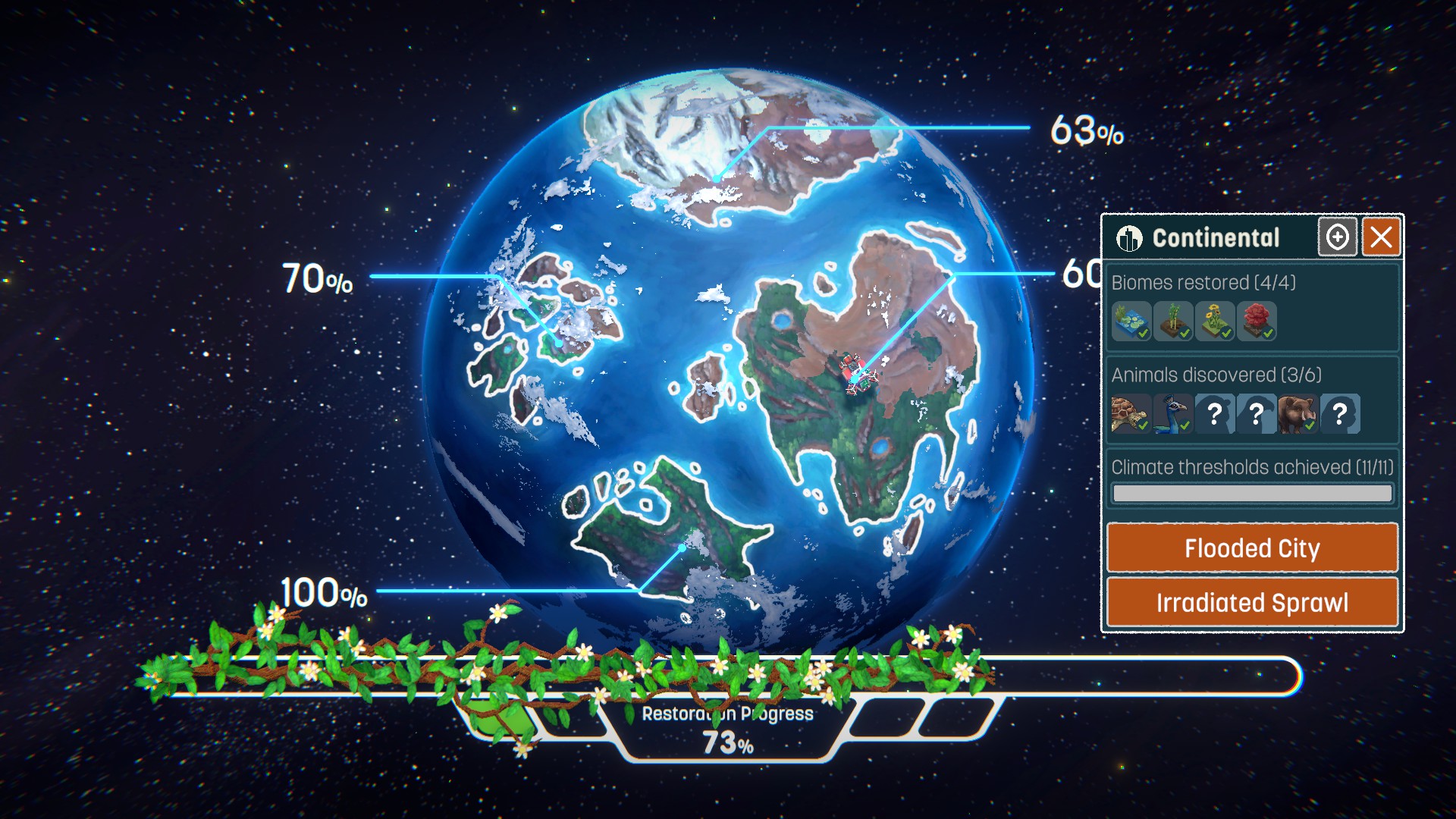
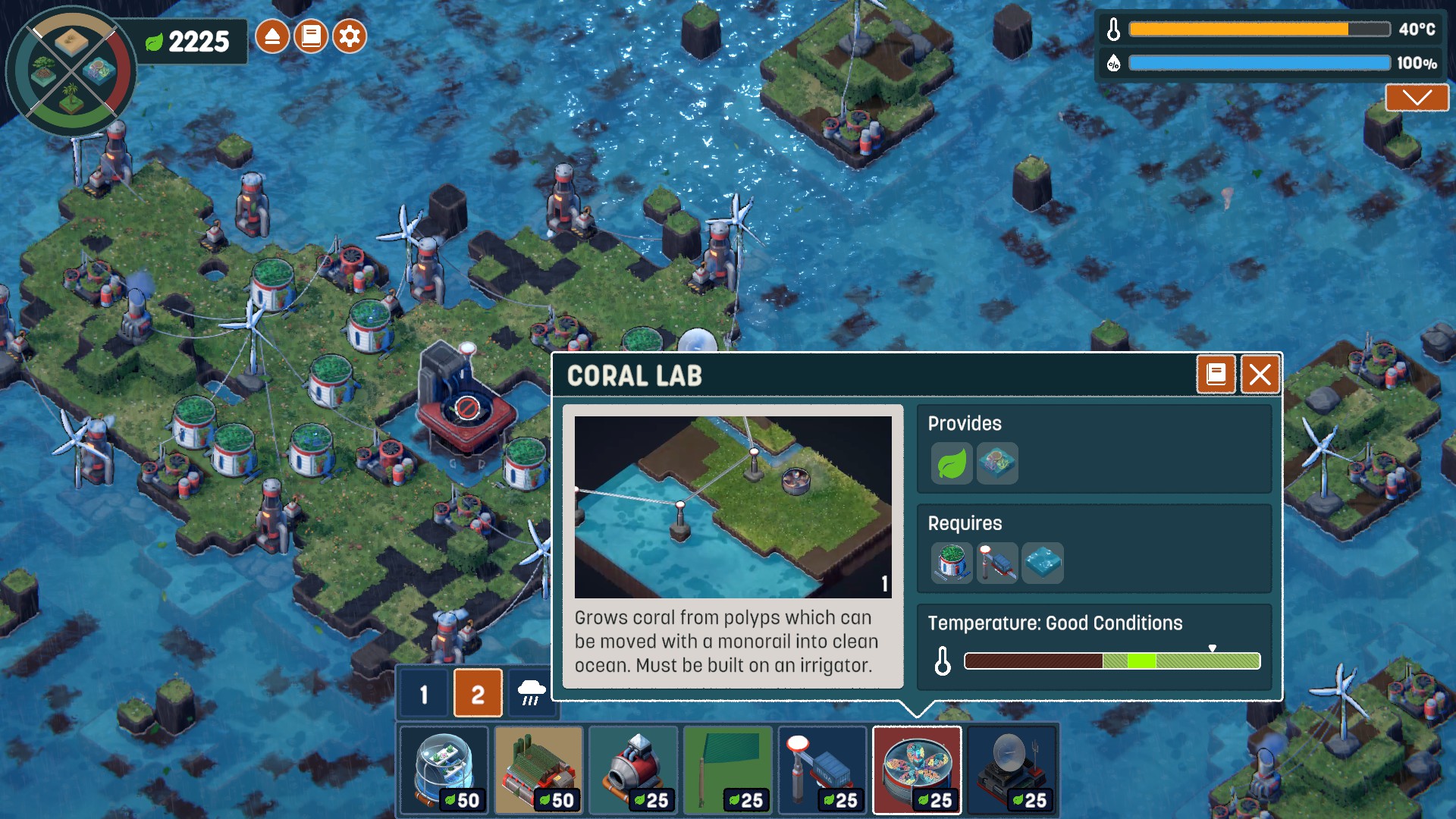
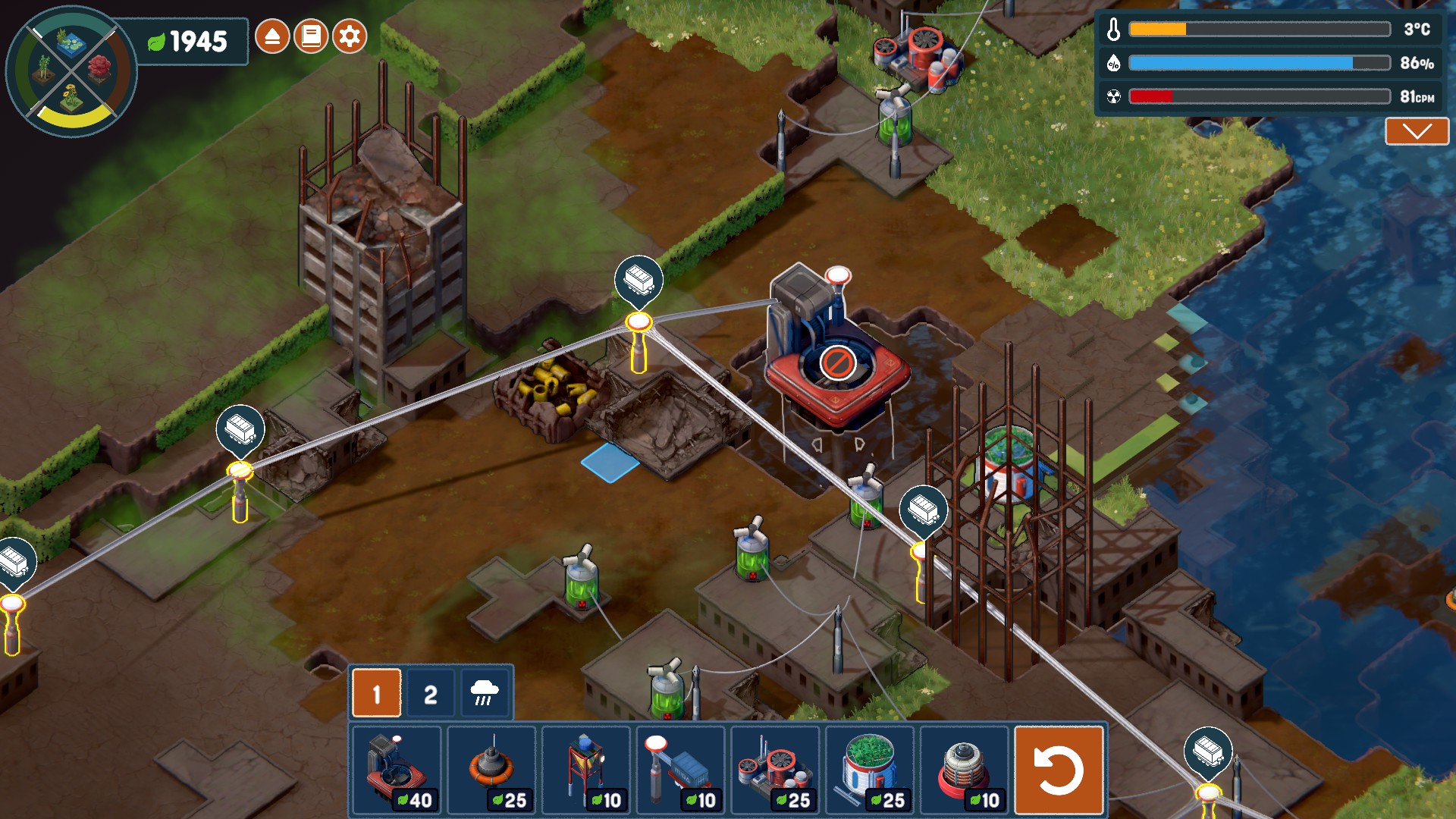
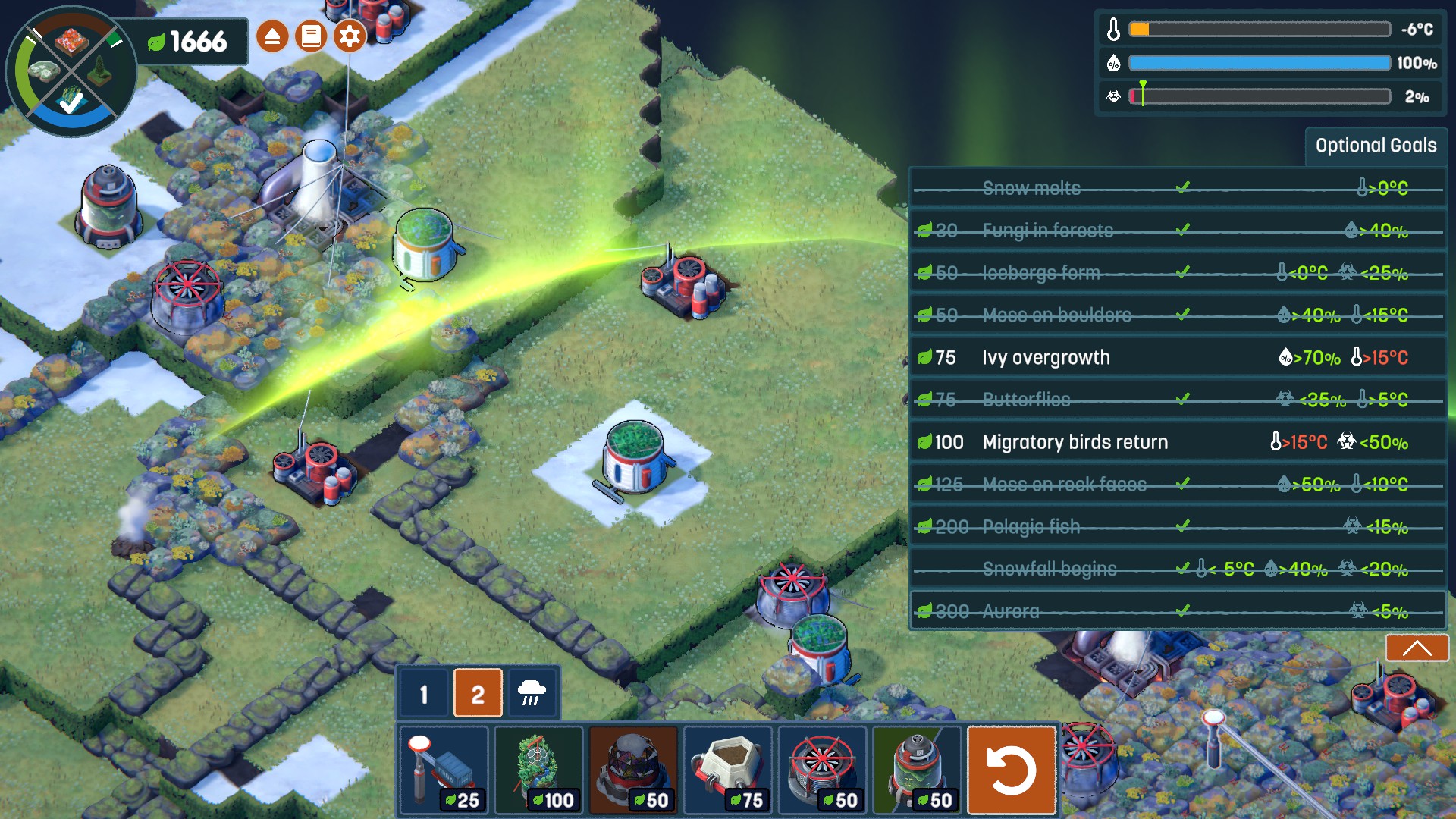
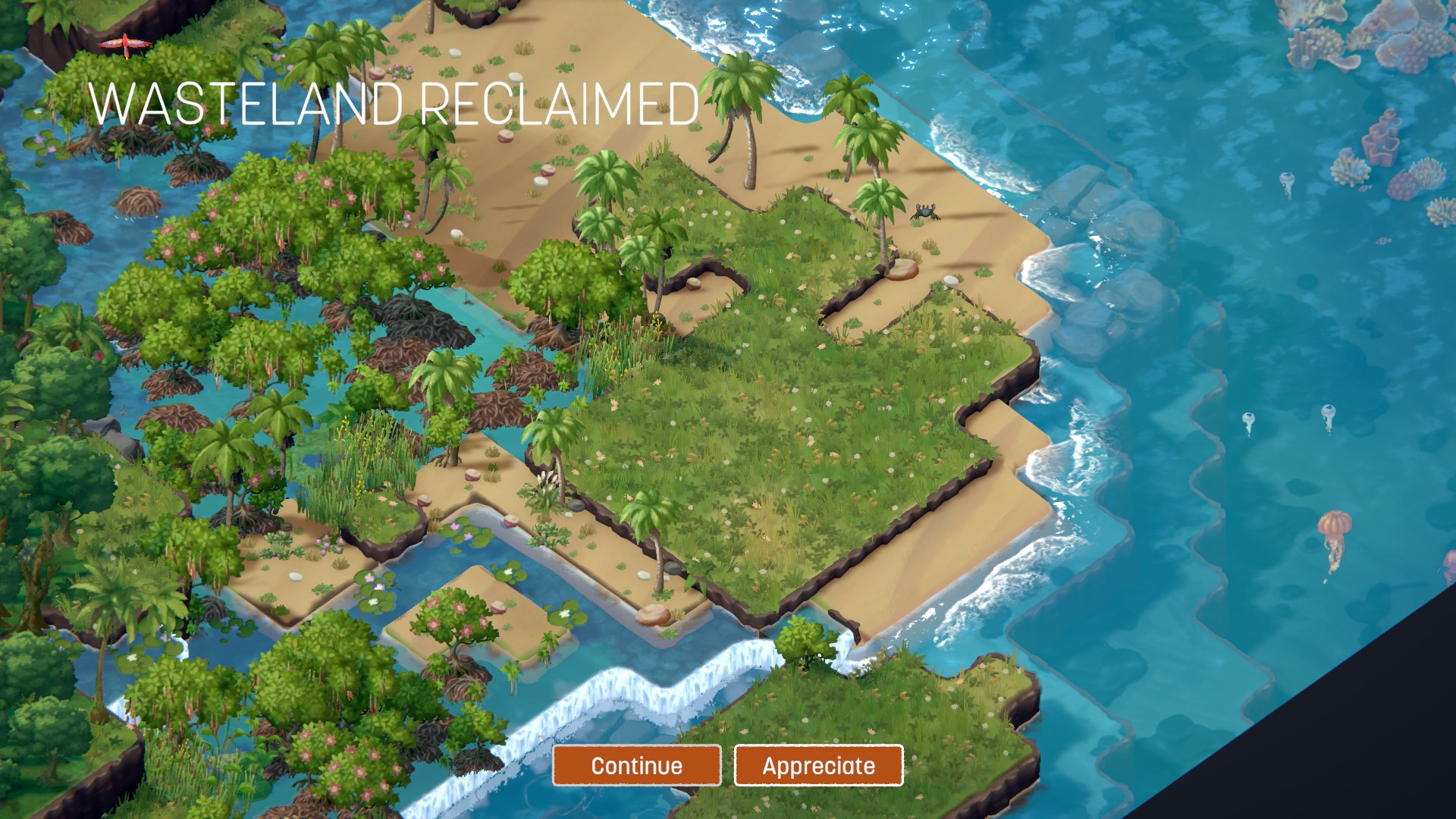
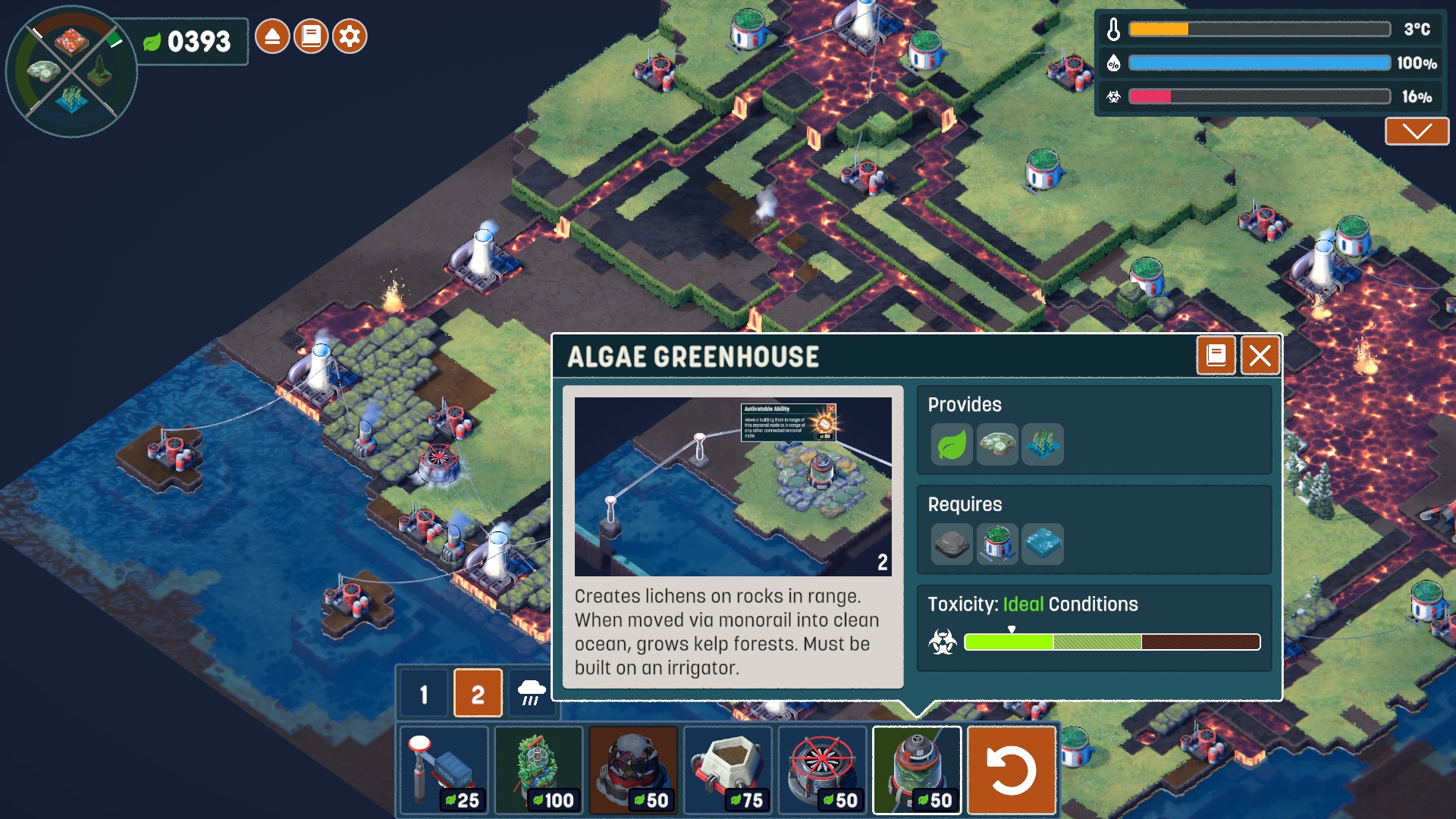
It also makes it an entertaining game to return to, although I do worry a bit about diminishing returns. The randomly generated maps provide their own challenges, with the placement of a natural lake or river often defining your strategy. But, like a good game of solitaire, unpredictability and adapting to what chance provides is part of the fun, although your toolbox is robust enough to make failure a distant concern with a little practice.
Chaos theory
These random aspects of Terra Nil don't always pay off as welcome variety. While it's often possible to bodge your way through to a passing grade on most missions, getting top marks (requiring you to create habitats for all the animals and hitting all the climate targets) sometimes requires a very specific arrangement of biomes adjacent to each other, which the map layout may not be conducive to.
That said, it was seldom more than a minor obstacle making a 100% score a little harder. A minor blemish on what was otherwise a consistently relaxing, satisfying experience.
Terra Nil is not a game with grand ambitions and can't challenge Civilization's One More Turn compulsion loop or supplant Anno as an all-consuming time sponge, but it doesn't aim to, either. Its themes are well reflected in its design; as much fun as you might be having, sometimes it's best to just clean up when you're done and move on. Not everything has to last forever or grow endlessly. Bowing out gracefully brings its own satisfaction.
A small but satisfying strategy puzzler that comes, does its job and leaves without fuss.

The product of a wasted youth, wasted prime and getting into wasted middle age, Dominic Tarason is a freelance writer, occasional indie PR guy and professional techno-hermit seen in many strange corners of the internet and seldom in reality. Based deep in the Welsh hinterlands where no food delivery dares to go, videogames provide a gritty, realistic escape from the idyllic views and fresh country air. If you're looking for something new and potentially very weird to play, feel free to poke him on Bluesky. He's almost sociable, most of the time.
